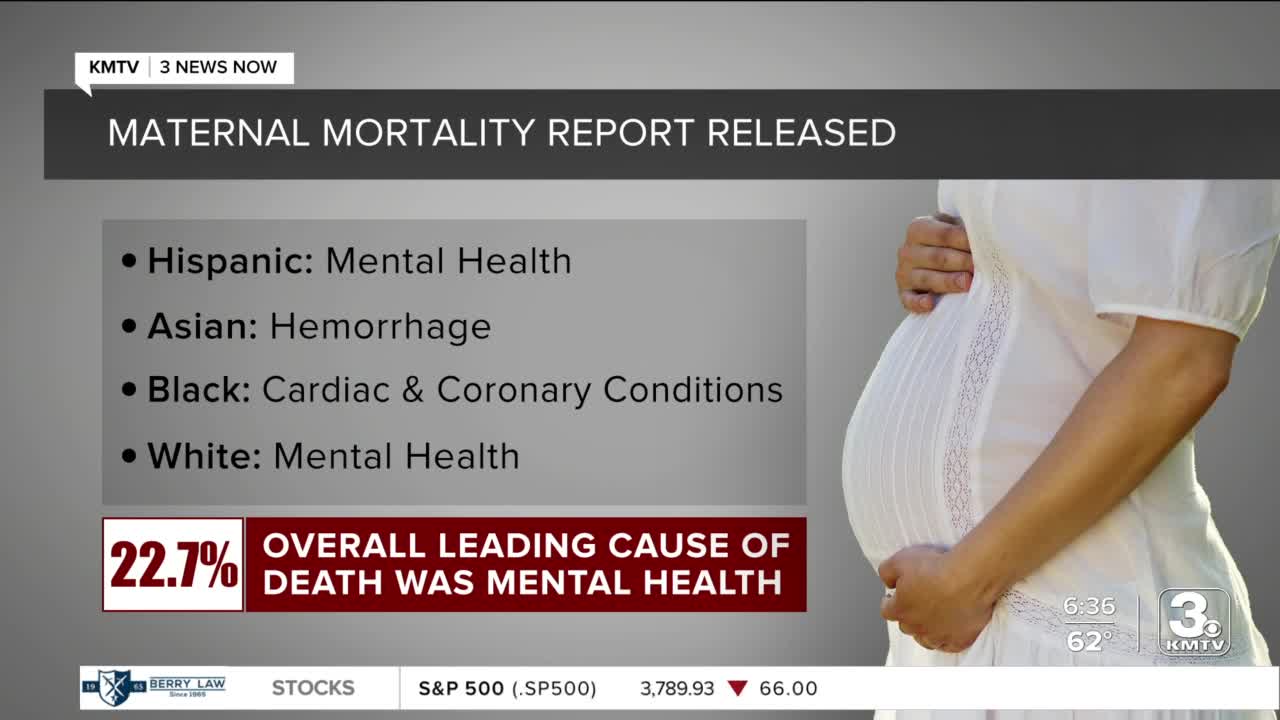OMAHA, Neb. (KMTV) — A recent report from the CDC found more than four out of five pregnancy-related deaths can be avoided.
According to the report, the causes of death vary due to factors like race and ethnicity. For those who identify as Hispanic and those who are white, the leading cause of death was mental health. For those who identify as Asian, the leading cause of death was hemorrhaging; for those who are Black, it was cardiac conditions.
While it varies, the overall leading cause of death was mental health.
"It's heartbreaking because a lot of women do suffer in silence and, unfortunately, for whatever reason they don't get the help and care they need," said Amanda Schraut, an Outpatient Medical Social Worker with Nebraska Medicine.
She says there are a range of mental health conditions someone can experience during pregnancy or postpartum — with postpartum being the most talked about.
Schraut says it's important for pregnant people and those who support them to be educated. She adds moms should also be aware of how they're feeling.
"I think what I try to encourage our moms at the clinic to do is to have some awareness of how they’re feeling in their pregnancy, especially if they’ve ever had any previous mental health conditions, previous depression or anxiety, whatever it might be. And honestly, no matter when it was, whether it's two years, five years or 10 years," Schraut says.
She adds that mothers should not put those feelings off: if you are feeling symptoms or are not feeling like yourself, seek resources. The sooner you seek care, the better the outcome.
Care after complications should also not wait. CyncHealth has created a pilot program with federally qualified health centers to ensure medical providers get immediate information when patients seek emergency care.
"What we hope is with this pilot again providing them with timely information if a birthing parent shows up in an emergency department with hypertension, so they have high blood pressure — that's a very high rate cause of maternal deaths. High blood pressure especially right after delivery or pregnancy. So that's one indicator knowing that patient they’re caring for had to be seen in the emergency room for a diagnosis like that, would allow them to intervene more quickly and ensure they have that follow-up in the right kind of attentiveness for that," said Chief Program Officer Melanie Suber.
They hope the quicker patients receive the care, the lower the maternal mortality rates will be.
Right now, it can take a few days for the information to transfer from the emergency room visit to a patient's primary care or obstetrician.
"If they find out a few days after it's much different than 'Hey, you were in the emergency room last night and we need to get you back in here and make sure you’re getting the care you need,'" Surber said.
If you or someone you know needs mental health support, Nebraska Medicine hosts a monthly support group for expectant and recent mothers called "Lean In". You do not need to be a Nebraska Medicine patient to participate. You can find more info here.
Other services include Omaha Better Birth, and Postpartum Support International.



